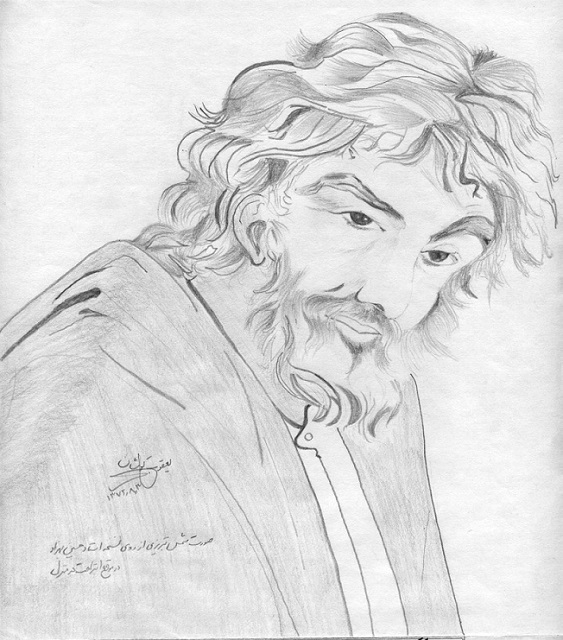We’re all familiar with Rumi.
His poetry has opened doors that were closed within many people, and he has described God, love, and life in the most astounding ways. However, we rarely speak of who was behind Rumi’s inspiration.
In 1244, Rumi, who was a scholar and a wealthy nobleman, met Shams-i-Tabrīzī (Shams Tabrizi) who was a wandering dervish and a holy man. A distinguished spiritual companionship emerged between the two, although it didn’t last for more than three years.
Rumi’s encounter with Shams—which was soon followed by a sudden separation from him—had transformed Rumi to a mystical poet. In other words, without the presence (and absence) of Shams in Rumi’s life, the Rumi we know wouldn’t exist.
In the renowned novel The Forty Rules of Love, Elif Shafak (the author) presents Shams Tabrizi to the world and speaks of his 40 rules. Although she did extensive research before writing the novel—add to that her keen interest and devotion for Sufism—we’re not sure whether Shams did write the rules precisely as presented in the book or not.
Throughout his lifetime, Shams wrote a considerable amount of spiritual advice (which he taught to Rumi) and Elif exposed herself to all of them. That said, whether the rules are indeed Shams’ accurate words or inspired by his writings, they’re worth the read.
There are a few rules in particular that I have found astounding, and I want to share them with those who aren’t yet familiar with the novel.
On love.
“Hell is in the here and now. So is heaven. Quit worrying about hell or dreaming about heaven, as they are both present inside this very moment. Every time we fall in love, we ascend to heaven. Every time we hate, envy, or fight someone we tumble straight into the fires of hell.”
Perhaps, if we change our perception of heaven and hell, we’d take better responsibility for our actions in this present moment. Our actions and experiences right now determine whether we are in hell or in heaven.
“A life without love is of no account. Don’t ask yourself what kind of love you should seek, spiritual or material, divine or mundane, Eastern or Western. Divisions only lead to more divisions. Love has no labels, no definitions. It is what it is, pure and simple. Love is the water of life. And a lover is a soul of fire! The universe turns differently when fire loves water.”
Love is a universal experience that doesn’t need to be sectioned or labeled. When we understand this truth, we can expand our hearts and minds and spread our compassion to all living beings.
On life.
“Whatever happens in your life, no matter how troubling things might seem, do not enter the neighborhood of despair. Even when all doors remain closed, God will open up a new path only for you. Be thankful! It is easy to be thankful when all is well. A Sufi is thankful not only for what he has been given but also for all that he has been denied.”
We might be grateful only when things go well. When life doesn’t meet our expectations, we drown in sorrow. To be thankful for all life’s conditions is what truly defines our power, strength, and faith.
“Try not to resist the changes which come your way. Instead, let life live through you. And do not worry that your life is turning upside down. How do you know that the side you are used to is better than the one to come?”
Change is our worst enemy because it holds uncertainty at its core. But oftentimes, all our wishes and needs reside within uncertainty. Surrender to what’s spinning, for it will always fall on the right side.
“It is never too late to ask yourself, ‘Am I ready to change the life I am living? Am I ready to change within?’ Even if a single day in your life is the same as the day before, it surely is a pity. At every moment and with each new breath, one should be renewed and renewed again. There is only one way to be born into a new life: to die before death.”
Death isn’t confined to physical annihilation. To die while we’re still breathing means to shed the old every moment and be reborn again.
On patience.
“Patience does not mean to passively endure. It means to look at the end of a process. What does patience mean? It means to look at the thorn and see the rose, to look at the night and see the dawn. Impatience means to be shortsighted as to not be able to see the outcome. The lovers of God never run out of patience, for they know that time is needed for the crescent moon to become full.”
Nothing is accomplished in the universe without patience. Everything needs time to flourish, grow, and become. Let’s not strive for the outcome; rather, let’s focus on the process and enjoy it.
~
**Source: The Forty Rules of Love by Elif Shafak
~
Relephant:
13 Rumi Poems to Awaken the Love Within Us.
Rumi on Barefoot, Bare-faced, Messy Hair Self-Love.
~
Author: Elyane Youssef
Image: WikiMedia Commons
Editor: Yoli Ramazzina
Copy editor: Travis May
 Share on bsky
Share on bsky






Read 0 comments and reply